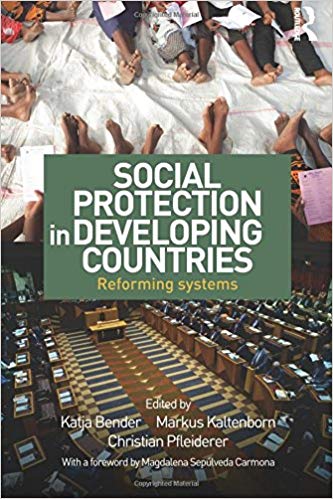Social Protection in Developing Countries: Reforming Systems
By Katja Bender, Markus Kaltenborn, Christian Pfleiderer, Magdalena Sepulveda Carmona Providing universal access to social protection and health systems for all members of society, including the poor and vulnerable, is increasingly considered crucial to international development debates. This is the first book to explore from an interdisciplinary and global perspective the reforms of social protection systems introduced in recent years by many governments of low and middle-income countries. Although a growing body of literature has been concerned with the...


